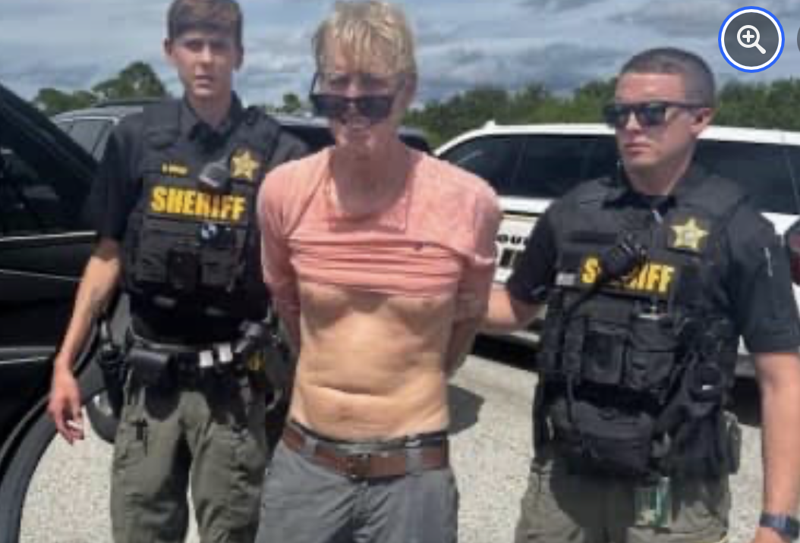Prosecutors said they don’t want the man they accused of trying to kill former President Donald Trump to turn over evidence in the case to the media or anyone else.
Federal prosecutors filed a motion seeking protections for discovery materials in the case that would prohibit Wesley Ryan Routh, 58, from possessing discovery materials outside the presence of his defense team unless authorized by prosecutors.
Prosecutors said the protections are necessary to “prevent the improper dissemination of the discovery materials to influence the public’s perception of the matter or unduly interfere with the proper administration of justice.”
Prosecutors also said Routh had sought out contact information for media outlets. They also said he had sought additional publicity.
“Routh himself has proven to be someone who desires the spotlight,” prosecutors wrote in the motion. “Within the past few years, Routh self-published a book in which he called for the assassination of former President Donald J. Trump; exuded condemnation towards the Former President both in public and private messages; attempted to copyright a work of fiction based on his life; drafted multiple letters addressed to various media outlets to discuss his world views; and drafted a separate letter in which he announces a $150,000 bounty for someone to complete his objective of assassinating the Former President.”
Even behind bars, Routh has sought out news agencies. Prosecutors said Routh told his daughter during a phone call from jail that he wanted the addresses for news organizations. He also said that the Bureau of Prisons denied NBC’s request to conduct an interview.
“Routh then advised that he wanted to mail letters to these news agencies, prompting the daughter to respond that it would not be good for ‘us’ at this time,” according to the motion from prosecutors.
A judge had not ruled on the prosecution’s request as of Thursday.
Prosecutors accused Routh, 58, of Hawaii, of stalking Trump for a month before he built a sniper’s nest near the Trump International golf course in West Palm Beach.
Federal prosecutors charged Routh with possession of a firearm by a felon and possession of a firearm with an obliterated serial number and attempted assassination of a major presidential candidate.
Routh has pleaded not guilty.
An FBI agent detailed in court documents the inside of the alleged gunman’s sniper nest where prosecutors said he waited for hours with a scope-fitted rifle.
A photo of the nest showed two bags hanging from a fence off the sixth hole. An FBI agent said the bags contained plates that could stop small arms fire. In between the two bags was an SKS-style rifle with a scope. Agents matched a fingerprint on the rifle to Routh.
Federal prosecutors said the FBI examined the SKS-style rifle that was recovered from Trump International Golf Club and found a latent fingerprint on a piece of tape attached to the rifle. The latent print preliminarily matches Routh.
Prosecutors said Routh had been planning to kill the former president for months. Agents found in Routh’s Nissan Xterra a handwritten list of dates in August, September and October 2024 and venues where Trump had appeared or was expected to be present.
Routh also left a note. A resident of Hawaii and North Carolina and participant in the latter’s March 5 primary, Routh left the note with a person federal prosecutors described as a civilian witness several months before the Sept. 15 incident. The letter offered money to anyone who would finish the job.
The letter reads in part, “This was an assassination attempt on Donald Trump but I failed you. I tried my best and gave it all the gumption I could muster. It is up to you now to finish the job; and I will offer $150,000 to whomever can complete the job.”
Routh’s attorney chalked it all up to a publicity stunt.
A U.S. Secret Service agent, a hole ahead of Trump walking the perimeter, spotted a rifle sticking out from the tree line. The agent fired in the direction of the rifle before a witness told authorities Routh sped away in a Nissan sport utility vehicle.
Routh’s cellphone records indicated he had been camped out from 1:59 a.m. to 1:31 p.m., according to a criminal complaint filed in the federal case.
Authorities caught Routh on Interstate 95.






